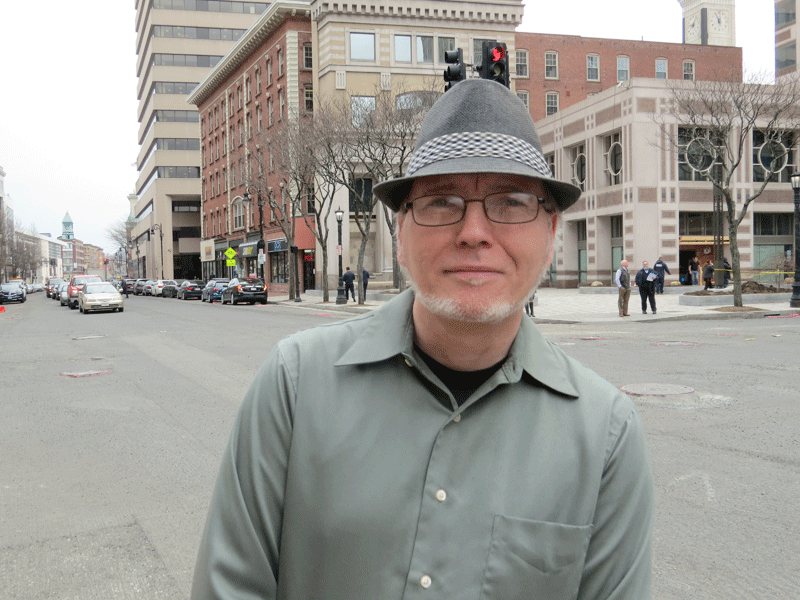in Environment and Engineering
Jim Cayon says he’s looking for an opportunity. A chance. A break. An open door.
He probably used all those words and phrases as he talked with BusinessWest about relatively new and occasionally misperceived products and his ongoing quest to prove that they work, can save users money and substantially reduce pollution. To do that, he needs an opportunity to demonstrate all his technology could do for them.
The company is called Environmental Engines, and it offers motor oils with a 30,000-mile lifespan, Cayon claims, as well as advanced protection technology (APT), a synthetic metal treatment that’s been proven to substantially decrease friction. The result is a reduction in damaging harmonics and wear on the engine as well as transmissions, which improves performance and fuel efficiency while significantly lowering carbon emissions.
It can do this, he said, for cars, trucks, motorcycles, buses, boats, you name it.
Cayon, who handles the Northeast sales region for the Nevada-based company and was an exhibitor at last fall’s Western Mass. Business and Innovation Expo, told BusinessWest that he’s been approaching various businesses and municipalities to consider his oils and treatments as a solution in further reducing maintenance costs and emissions. (The lubricants alone reduce related expenses and dirty-oil waste by two-thirds or more, he claims).
And for the most part, he’s still looking for an entity to take that chance.
And he understands, generally, why that is.
Many businesses with fleets, not to mention and municipalities are loyal to the products they’re already using — and are contractually obligated in some cases — and these factors make it difficult to avail themselves of such opportunities, said Cayon, based in Easthampton.
“It’s human nature to resist change, yet on the other hand, there is some preconception about what the Environmental Engines products are or aren’t,” he explained.
“They’ve already made up their minds,” he went on, adding that the motor oil industry isn’t easy to break into because of brand loyalty and long-standing relationships. “In many cases, they think they know what is — they think it’s that thing they’ve heard or read about that doesn’t work — and so they don’t even want to consider trying it.”
Cayon doesn’t give up easily, and he’s working hard to make it as simple as possible for those he’s talking with to put the company’s products to work. And he brings with him what he considers some very compelling arguments, not just about the APT ceramic protection and motor oils, but also about how they would fit in nicely with many companies’ ongoing efforts — and missions — to become more ‘green’ and Earth-friendly, but also more bottom-line conscious.
At present, Cayon has been focusing much of his time and energy on getting the ear of area municipalities, many of which are actively engaged in efforts to become ‘green’ and energy efficient, and not just because it’s the right thing to do. There are frequently considerable cost benefits to doing so as well.
Cayon noted that the Pioneer Valley Planning Commission has, among its many goals, a desire to reduce carbon emissions in this by 80% by 2050. And then he threw out another number that should get someone’s attention.
“If everyone in this half of the state were to use our on-time engine treatment, in terms of cars, light trucks, and motorcycles, we’re talking about the elimination of up to 1.5 billion pounds of regional vehicle emissions every year,” he told BusinessWest. “The impact is profound if I get to that level, but …”
He didn’t finish, but made it clear that he would like to start with at least one city, town, or large business fleet and expand from there.
He has extended invitations to every community in Berkshire, Franklin, and Hampshire counties, with Hampden and most of Worcester County to follow.
What he’s sending them is a fairly comprehensive explanation of how APT ceramic protection works, and how it could change the equation for the municipality in question.
Here is how it works. APT is a nanotechnology that permanently embeds into the metal parts within an engine to form what Cayon called a “microceramic seal” on all metal parts within an engine. Indeed, these treatments can be applied not only to engines and transmissions, but hydraulic systems, fuel pumps and injectors, drive trains, air conditioning systems, power steering systems, and more.
Elaborating, Cayon said APT molecules are able to penetrate sludge and residual buildup on surfaces without the use of solvents. It forms a ceramic shield that protects the engine from heat, allowing for exceptionally high temperatures without any damage and metal wear. Once bonded, the surface is smooth with fewer pores for particulates to latch onto, said Cayon, therefore repelling potential carbon buildup back into the lubricant stream, where it is cleaned by vehicles’ inline or bypass filtration system.
“The two major benefits are emissions reduction and better engine responsiveness — which is going to be correlated somewhat with fuel efficiency,” he explained. “And the responsiveness factor is important; if you have vehicles you’re relying on like ambulances, fire trucks and police cruisers, for example … those are vehicles that need to be performing at a very high level.”
That’s the message Cayon is trying to convey to potential clients of all kinds in both the private and public sectors. There are many challenges to getting that message across, but he’s going to keep trying, because if they do listen, they will likely be compelled to respond to what they hear.
Like he said, he’s looking for a chance, an opportunity to become the solution for companies looking to reduce their carbon footprint as well as motor oil costs. But the real opportunity could come to those who open their doors to it.








Leave a Reply
You must be logged in to post a comment.